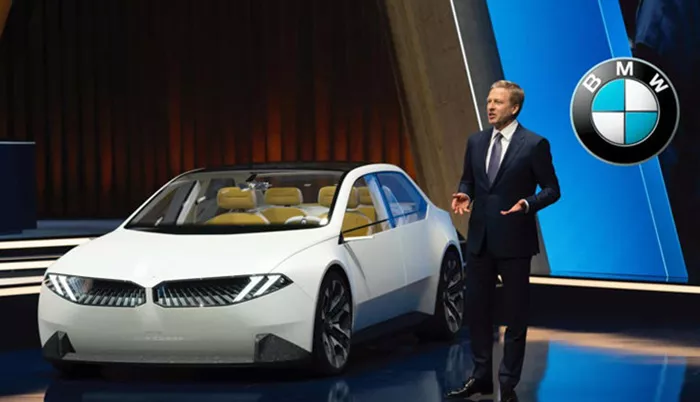BMW is raising concerns about the global push toward electric vehicles (EVs). The company’s CEO, Oliver Zipse, says the transition should be guided by consumers—not forced by regulations. He argues that current policies risk sending the auto industry down a “dead-end street.”
Speaking at BMW’s annual shareholder meeting last week, Zipse emphasized that while the company supports climate goals, rigid EV mandates limit flexibility. “We take ambitious political goals seriously,” he said, “but we don’t believe in technically one-sided regulations that limit supply.”
Zipse believes that only a balanced, comprehensive approach will encourage long-term investment and real progress. He also stressed that e-mobility, if treated as the only solution, cannot succeed on its own.
Struggles in China and Falling Profits
BMW is facing major challenges. Its sales are dropping sharply in China, and profits from other regions aren’t enough to make up for the loss. In the first quarter of this year, the company’s earnings fell by 23%. That figure came before new U.S. auto tariffs began impacting the market.
One of the few bright spots for BMW is its EV division, which posted a 32% increase in year-over-year sales. Still, Zipse warns that the global auto market remains deeply divided in terms of EV adoption.
A Patchy Global EV Market
Zipse pointed to differences across Europe to show why a one-size-fits-all policy doesn’t work. For example, EVs account for 60% of vehicle sales in Belgium but just 4% in Italy. These regional gaps make it difficult for automakers to set consistent product strategies.
Companies now need to produce strong EVs for some markets and competitive gasoline or hybrid cars for others. That split increases the pressure on manufacturers, especially luxury brands like BMW, which operate on smaller sales volumes.
BMW has managed to build a solid reputation in both internal combustion and electric vehicle markets. Its upcoming Neue Klasse models are expected to set new standards for EV design and technology. But maintaining leadership across multiple drivetrain types is expensive and risky.
Tariffs and Competition from China Add Pressure
The company’s stance also reflects growing tension in the global auto industry. Western automakers, including BMW, are struggling to sell EVs at a profit and to attract U.S. buyers. Now, they’re facing additional challenges from trade tariffs and rising competition from Chinese brands.
BMW and its peers are learning that they cannot compete effectively in China’s home market. At the same time, the U.S. is moving more slowly toward EV adoption than many had expected. On top of that, many current products will soon face a 25% price hike due to tariffs.
Automakers are feeling squeezed. Chinese manufacturers are growing fast, and the Trump administration’s trade policies are adding uncertainty. As a result, companies are turning to regulators, asking them to rethink aggressive electrification targets.
Europe’s Dilemma: Climate Action vs. Economic Stability
In the U.S., regulators may be open to such requests. But in Europe—especially in Germany—the situation is more complex. EV adoption is stronger, and political leaders are more committed to fighting climate change.
However, Germany’s economy is heavily dependent on the auto sector. Car manufacturing makes up about 5% of its Gross Domestic Product (GDP). The industry is also dealing with high labor costs, expensive energy, and strict environmental rules.
Germany has already experienced two consecutive years of economic decline. That economic pressure may push German leaders to support changes in EU policy that would ease the burden on domestic automakers like BMW, Audi, and Mercedes-Benz.
BMW Leads in EV Sales but Struggles with Profitability
Among Germany’s top carmakers, BMW currently leads in electric vehicle sales. Still, profitability remains a challenge as the company ramps up production and innovation in the EV space.
Zipse made it clear that BMW wants more flexibility from lawmakers. “Political goals must reflect market realities – and also be viable for businesses,” he said. He added that global investment is already focused on the long-term outlook, especially beyond 2030 and 2035.
He sees the upcoming review of EU emissions targets as a critical moment. “It is our chance to improve the system,” he said. “Europe needs a top-performing automotive and supplier industry. We are fighting for this and pushing back against negative developments.”
The Road Ahead Remains Uncertain
BMW is one of the more advanced automakers in terms of EV innovation. Even so, Zipse’s comments highlight just how difficult the path to zero-emission transportation will be for the entire industry.
While governments continue to tighten regulations, automakers are calling for a more balanced approach. They argue that without strong consumer demand and practical flexibility, the EV transition could stall—and hurt both innovation and industry stability.


